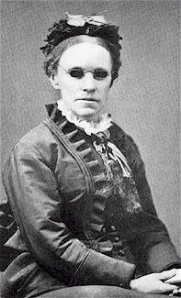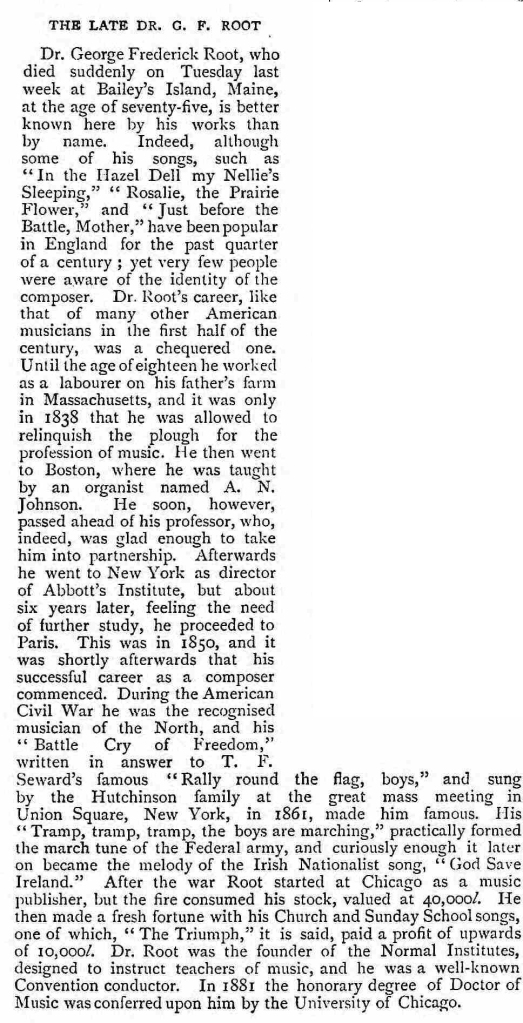There was more on that same page of The Graphic dated August 17th 1895 than just a review of a pheasant shooting handbook (see below). Right beside it was the news that a man who wrote the songbook of the American Civil War had just died.
As the obituary recalled, George Frederick Root “…is better known here [England] by his works than by name.” That may be as true today. When you think of this period it is Stephen Foster’s name which comes up as the antebellum writer. True, he was a prolific composer of nowadays politically-corrected minstrel show songs like Camptown Races, Beautiful Dreamer, Swanee and My Old Kentucky Home. However, Root, or as he liked sometimes to style himself GF Wurzel (German for root), penned the very first song of the war The First Gun is Fired and continued in that fashion with such hits of the period as The Battle Cry of Freedom and Just Before the Battle, Mother.
Aside from composing George taught — notably in a blind school before the war, where he met the redoubtable poet, teacher and campaigner Fanny Crosby, .the “queen of gospel songs” Together they wrote a number of secular hits in the 1850s. There is some  question whether Root fairly shared the royalties with his blind lyricist — though in all probability Crosby, who had a “horror of wealth” may have turned down the money. Crosby, who wrote the lyrics for 8,000 hymns, sometimes up to eight a day, became a household name in the latter part of the century for her work in the poorest districts of New York. How brave was this woman? She was such an ardent Union supporter during the war that she often draped herself in the flag, literally. Once when a Southern sympathising woman suggested she take off the “rag”, the blind-since-birth Fanny suggested to the woman that she would fight her. Crosby lived into the 20th century, dying in 1915, aged 95.
question whether Root fairly shared the royalties with his blind lyricist — though in all probability Crosby, who had a “horror of wealth” may have turned down the money. Crosby, who wrote the lyrics for 8,000 hymns, sometimes up to eight a day, became a household name in the latter part of the century for her work in the poorest districts of New York. How brave was this woman? She was such an ardent Union supporter during the war that she often draped herself in the flag, literally. Once when a Southern sympathising woman suggested she take off the “rag”, the blind-since-birth Fanny suggested to the woman that she would fight her. Crosby lived into the 20th century, dying in 1915, aged 95.
